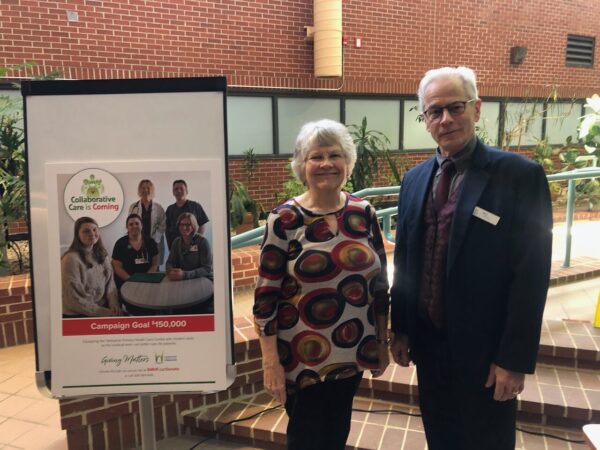A proposed law would allow New Brunswick to join a multimillion dollar class-action lawsuit against more than 40 pharmaceutical players involved in the opioid industry.
Bill 58, the Opioid Damages and Health Care Costs Recovery Act, is meant to help recoup funds which the health-care system has lost because of the opioid epidemic.
The government bill went through second reading in the legislature on Tuesday, and so far appears to have the support of all parties.
Listen to the report from CHMA:
Local MLA and Green Party health critic Megan Mitton (Memramcook-Tantramar) told the Legislative Assembly that any funds won through legal action should be used to deal with addiction-related issues.
For example, she called for more safe consumption sites, facilities where people can use substances indoors under the supervision of trained staff who can intervene in case of an overdose.
Ensemble Moncton recently opened an overdose prevention site in downtown Moncton, the first of its kind in New Brunswick. The organization also installed a vending machine-style service in Sackville to distribute material such as sterile syringes.

A wave of overdoses in Saint John has also led to calls for a safe consumption site in that city.
Among other changes, Mitton called for more widespread availability of Naloxone kits, which can rapidly reverse an overdose.
“We hear from firefighters, we hear from other first responders that they’re administering Naloxone kits regularly,” she said. “It’s increasing significantly every year. And they’re also asking for that cost to be covered, because it’s quite expensive.”
British Columbia, ground zero for the deadly opioid crisis in Canada, first launched a class-action lawsuit in 2018 against opioid companies on behalf of all federal, provincial and territorial governments in Canada.
Bill 58 would give New Brunswick the authority to take part in that class action, Minister of Health Bruce Fitch said when he introduced the legislation last month. New Brunswick is now the only province other than Quebec without such a law, he said.
The bill is scheduled for discussion at a legislative committee meeting on Wednesday afternoon.
Liberal MLA Robert McKee (Moncton Centre) said Tuesday he hoped the bill would “send a message to Big Pharma and the manufacturers, distributors and consultants of the opioid industry: they can’t be absolved from liability for the harm these drugs have done.”
Tory MLA and government house leader Glen Savoie (Saint John–East) said the death toll linked to opioid consumption in New Brunswick reached a new height in 2022 with 46 fatalities.
Last year, B.C. announced that it had arrived at a proposed settlement with Purdue Pharma Canada, with a deal worth $150 million. The Government of B.C. has called it the “largest settlement of a governmental health-care cost claim in Canadian history.”
The U.S.-based company Purdue Pharma, owned by the billionaire Sackler family, is perhaps best known as the manufacturer of OxyContin.
The company declared bankruptcy in 2019 as it faced reportedly thousands of lawsuits worth billions in damages, claiming the company had misled the public about the addictive nature of Oxycontin, while aggressively promoting the potent semi-synthetic painkiller.
News broke last week that members of the Sackler family had won immunity from lawsuits linked to the opioid crisis, at least in the U.S., in exchange for a settlement worth $6 billion. Critics say the deal leaves the vast wealth of the Sackler family largely intact.
According to the Government of British Columbia, Purdue is just one among more than “40 manufacturers and distributors named in the class action,” which commenced in 2018 and is scheduled for a certification hearing this year.
Local perspectives
CHMA also reached out to local residents via Facebook to get their take on this issue.
“Any such funds should go directly into programs which benefit those harmed by addiction and the services required to overcome and heal,” said local resident Shaun Cunningham.
“Such services and programs should be determined and developed by those who have more expertise in the matter of addiction than governments or I will ever have, which is to say those that have worked directly with addicts and those who suffer from addiction themselves.”
He said adding the money to general revenue or other budget lines “would just be a way to profit from suffering, exactly like the opioid manufacturers have done themselves.”
Tim Reiffenstein, another local resident, welcomed the move by government to pursue opioid companies.
“The more the merrier when it comes to jurisdictions and class-actions,” he said, adding that medical professional associations should also be held accountable for their role in the crisis.



















